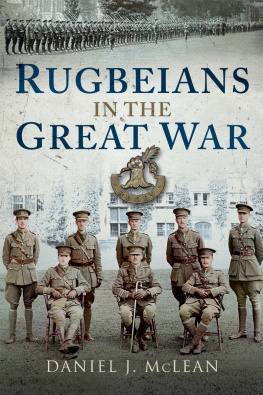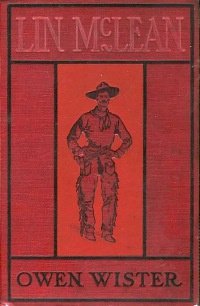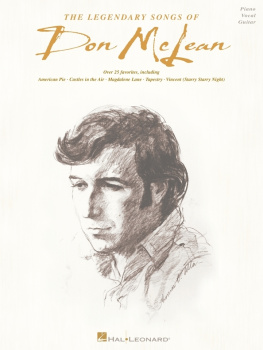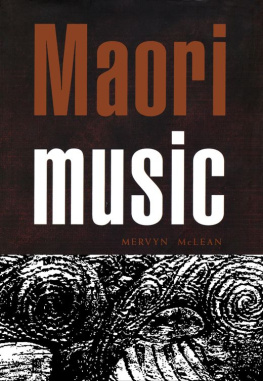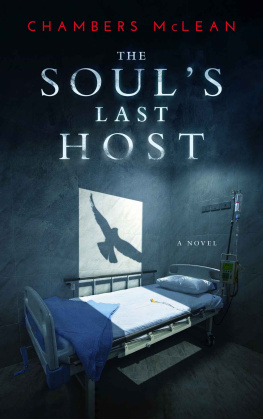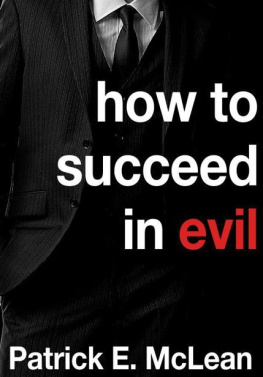Daniel J McLean - Rugbeians in the Great War
Here you can read online Daniel J McLean - Rugbeians in the Great War full text of the book (entire story) in english for free. Download pdf and epub, get meaning, cover and reviews about this ebook. year: 2020, publisher: Pen and Sword, genre: Detective and thriller. Description of the work, (preface) as well as reviews are available. Best literature library LitArk.com created for fans of good reading and offers a wide selection of genres:
Romance novel
Science fiction
Adventure
Detective
Science
History
Home and family
Prose
Art
Politics
Computer
Non-fiction
Religion
Business
Children
Humor
Choose a favorite category and find really read worthwhile books. Enjoy immersion in the world of imagination, feel the emotions of the characters or learn something new for yourself, make an fascinating discovery.
- Book:Rugbeians in the Great War
- Author:
- Publisher:Pen and Sword
- Genre:
- Year:2020
- Rating:5 / 5
- Favourites:Add to favourites
- Your mark:
- 100
- 1
- 2
- 3
- 4
- 5
Rugbeians in the Great War: summary, description and annotation
We offer to read an annotation, description, summary or preface (depends on what the author of the book "Rugbeians in the Great War" wrote himself). If you haven't found the necessary information about the book — write in the comments, we will try to find it.
Rugbeians in the Great War — read online for free the complete book (whole text) full work
Below is the text of the book, divided by pages. System saving the place of the last page read, allows you to conveniently read the book "Rugbeians in the Great War" online for free, without having to search again every time where you left off. Put a bookmark, and you can go to the page where you finished reading at any time.
Font size:
Interval:
Bookmark:

RUGBEIANS IN THE GREAT WAR
DANIEL J McLEAN

First published in Great Britain in 2019 by
PEN AND SWORD MILITARY
An imprint of
Pen & Sword Books Ltd
Yorkshire Philadelphia
Copyright Daniel J McLean, 2019
ISBN 978 1 52674 285 8
eISBN 978 1 52674 286 5
Mobi ISBN 978 1 52674 287 2
The right of Daniel J McLean to be identified as Author of this work has been asserted by her in accordance with the Copyright, Designs and Patents Act 1988.
A CIP catalogue record for this book is available from the British Library.
All rights reserved. No part of this book may be reproduced or transmitted in any form or by any means, electronic or mechanical including photocopying, recording or by any information storage and retrieval system, without permission from the Publisher in writing.
Pen & Sword Books Limited incorporates the imprints of Atlas, Archaeology, Aviation, Discovery, Family History, Fiction, History, Maritime, Military, Military Classics, Politics, Select, Transport, True Crime, Air World, Frontline Publishing, Leo Cooper, Remember When, Seaforth Publishing, The Praetorian Press, Wharncliffe Local History, Wharncliffe Transport, Wharncliffe True Crime and White Owl.
For a complete list of Pen & Sword titles please contact
PEN & SWORD BOOKS LIMITED
47 Church Street, Barnsley, South Yorkshire, S70 2AS, England
E-mail:
Website: www.pen-and-sword.co.uk
Or
PEN AND SWORD BOOKS
1950 Lawrence Rd, Havertown, PA 19083, USA
E-mail:
Website: www.penandswordbooks.com
There are many members of Rugby School whom I must thank, both pupils and staff. In particular I am very grateful to the Headmaster, Mr Peter Green, who has been a great support throughout my teaching career, and Dr Jonathan Smith, school archivist, for encouraging my interest in the schools wartime history and for allowing me access to the fascinating recesses of the archives. I must also thank Lieutenant General Tim Radford, Old Rugbeian, governor and father of another Rugbeian, whose encouragement and kind agreement to write the books foreword were a great spur to actual writing. Father David Lawrence-Marchs invaluable proof-reading skills have also been, as ever, extremely helpful. Finally, I must thank the boys of Sheriff House, Clare Bowes the matron, and Maurice Monteith, housemaster, for enduring my interminable conversations on topics that they no doubt find very dull.
Almost exactly 100 years after the guns fell silent at the end of the First World War, its impossible to appreciate fully the scale, brutality, hardship and sense of loss involved. Much has been written about the political and military leadership of the time and, arguably, many lessons have since been learnt.
The walls of the Rugby School Memorial Chapel stand as a stark reminder of the part played by Old Rugbeians, and the staff, between 1914 and 1918. Yet, these beautiful, simple inscriptions to 687 ORs cannot reflect the pain of the remainder, wounded in body and mind, who lived through this terrible life-changing ordeal. Nor can they convey the deep sadness and suffering of the families of the fallen, all of whom will have been connected to, and influenced by, Rugby School.
Despite the considerable advance in technology between 1914 and 1918, warfare was then, and always will be, a very human endeavour. It is, at its core, a battle of wills, about human strengths and fallibilities, about courage and selfless commitment, about innovation, initiative, compassion, sacrifice and about love.
For ORs like Maurice Hankey, the Cabinet Secretary, the Great War was about influencing prime ministers at the grand strategic level. For others, arguably less well-known, like Private H.A.B. Donkin of The Queens (Royal West Surrey Regiment), who died of pneumonia three days before Christmas at the Somme aged 19, I sense the war will simply have been about duty, loyalty and survival.
Between 1914 and 1918 ORs served throughout the armed forces in every rank. The majority served in infantry battalions from across the breadth of the British Isles and her empire. Others served, for example, in the Royal Artillery, the Royal Engineers or the cavalry. Some ventured into the Royal Flying Corps, the Royal Naval Air Service and later, when it was created in 1918, the Royal Air Force. Many however found themselves fixed in trenches on the Western Front for the duration of the war while others saw equally challenging service in Italy, Egypt, Palestine, Iraq, East and West Africa, as well as at Gallipoli. Campaign medals were hard-earned and, in many instances, were pinned next to British and allied awards for gallantry. Many were simply thankful to survive.
Dan McLeans brilliantly researched account vividly captures a flavour of the part played by ORs in the First World War. Some, like Rupert Brooke, are well known. Others, like Ernest Swinton, the inventor of the tank and author of the seminal Duffers Drift , have since had a major influence on warfare and junior officers throughout the western world. So too the tactical vignettes of Sergeant Richard Tawney and the works of Charles Cruttwell whose accounts of the realities of conflict remained authoritative for decades. For several the war enforced a pause from playing international rugby. Tragically, for others, the pause was permanent. The wartime records of many other ORs were shrouded by wider achievements in academia, business, the Church or sport. As is the Rugbeian way, they served, quietly, made a difference where they could and then got on with the rest of their lives.
Ive had the great privilege of commanding and serving alongside many ORs, on operations most notably in Afghanistan. The qualities demonstrated by ORs in the First World War were unquestionably still being shown in the summer of 2009 in Helmand Province by former pupils of Rugby School. Men and women who, like their forebears from the Great War had, until recently, sung together in the pews of the magnificent Butterfield Chapel and who had idled to lessons, side by side, between the doctors wall and the Close.
Warfare has undoubtedly become more technical, more sophisticated and more complex but the relentless assault on human emotions has remained constant. There are dark moments when soldiers search for solace. For me, on a number of occasions, as I know for others, memories of halcyon schooldays helped to provide comfort and ease the pressure a match on the Close, a hymn in chapel, the peace of a Sunday afternoon; sentiments that were undoubtedly shared by those who fought on foreign fields between 1914 and 1918.
As an OR, soldier, school governor and parent it strikes me that the qualities of courage, quiet self-assuredness, humility, kindness, selflessness and a hint of rebellion, which carried ORs through the Great War, are still just as evident in the classrooms, houses, chapel and on the sports pitches today.
This outstanding book serves as a gentle reminder, in particularly to current pupils, of the immense sacrifices made by young men who, once upon a time, inhabited their bed-spaces. The accounts are humbling and inspiring in equal measure, and an entirely fitting tribute to a lost generation.
Lieutenant General Tim Radford CB DSO OBE
11 th November 2018
One hundred years have passed since three and a half thousand Rugbeians went to war at the call of their country, and as a teacher in the twenty-first century it is quite impossible to imagine my pupils doing the same, certainly on such an extraordinary scale. Rugbeians still join the armed forces, but not by compulsion, and we no longer have the almost daily horror of the lists of dead to be read out in chapel by the Headmaster. It is all the more important, therefore, that we remember those who, through nothing more than an accident of birth, lived and died in a time when they were compelled to join and to fight, many of whom still lie on the battlefields where they fell. The inspiration for this book came from a chance discovery in the archives of Rugby School in November 2017. A battered suitcase, covered with shipping labels, caught my eye on a shelf and upon opening it I realised that it was full of letters, the topmost of which were addressed to a young officer in France in 1916. These were the effects of Second Lieutenant Louis Stokes of the Royal Marine Light Infantry, killed leading his platoon into action at Beaumont Hamel on the 13th November 1916. The collection was meticulously collected by Louis father after his death. With a little digging I realised that many of the letters had been published in the 1990s as the fascinating book A Dear and Noble Boy , edited by two members of Rugby School staff at the time, but I had the enviable task of cataloguing the rest of the huge collection of documents, including all of Louis school reports, calendars, documents relating to his applications to the RMLI and University of Cambridge, and even the invoices for the equipment he took with him to the Somme. Louis sat in the same classrooms, the same chapel pews and at the same dining tables as Rugbeians do today. He too once enthused over the wickets he took in house cricket and the quality of the food at lunch, threw chocolate to his friends in maths, and rejoiced at a cancelled lesson, but now he lies buried in the Picardy soil, at Mailly Wood Cemetery. One hundred years appears to be a short period of time when set in such a context.
Font size:
Interval:
Bookmark:
Similar books «Rugbeians in the Great War»
Look at similar books to Rugbeians in the Great War. We have selected literature similar in name and meaning in the hope of providing readers with more options to find new, interesting, not yet read works.
Discussion, reviews of the book Rugbeians in the Great War and just readers' own opinions. Leave your comments, write what you think about the work, its meaning or the main characters. Specify what exactly you liked and what you didn't like, and why you think so.

